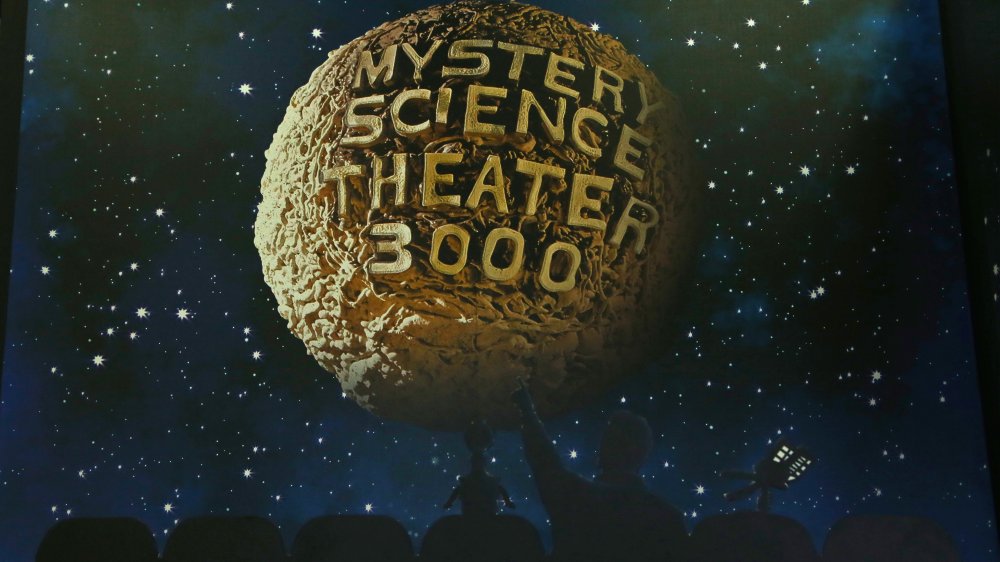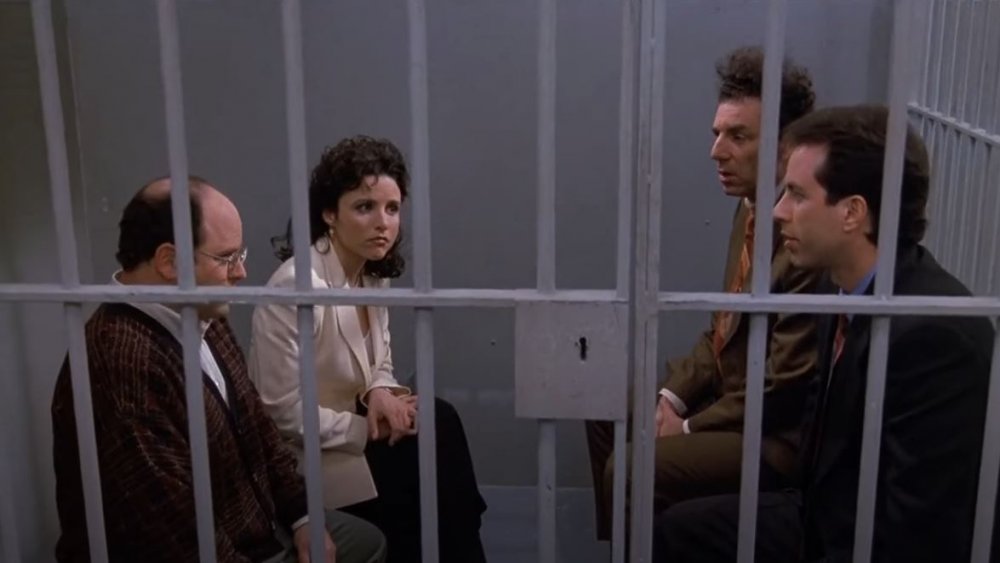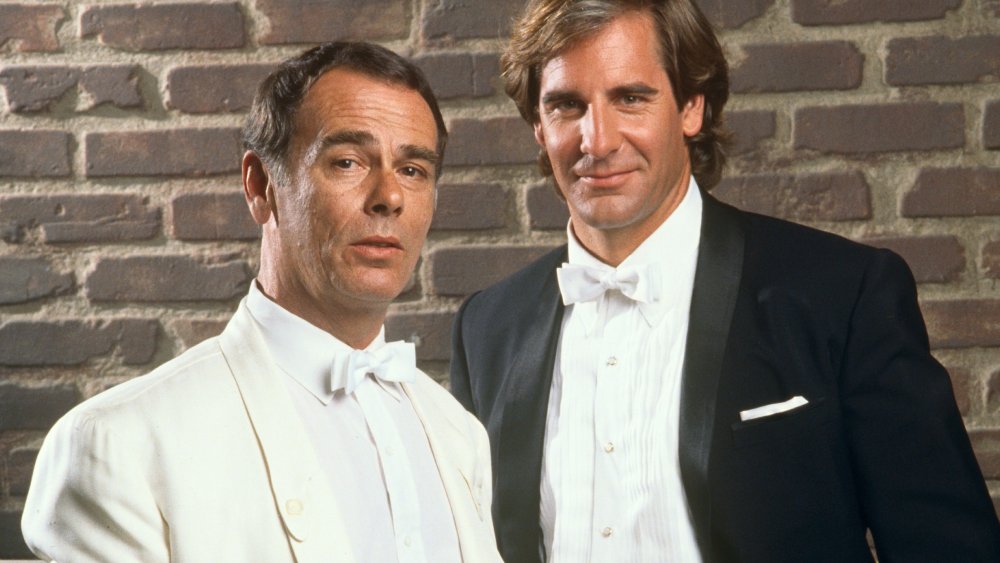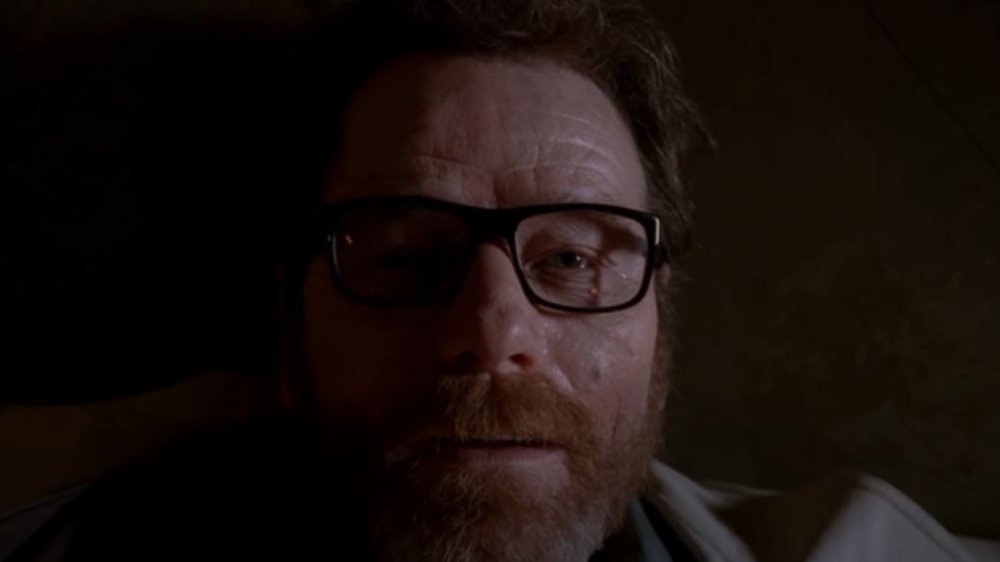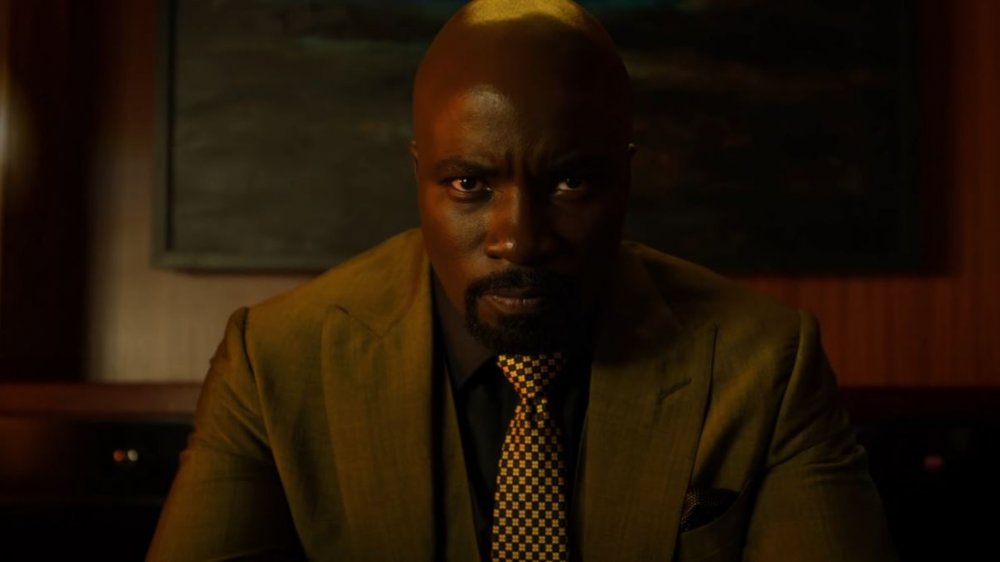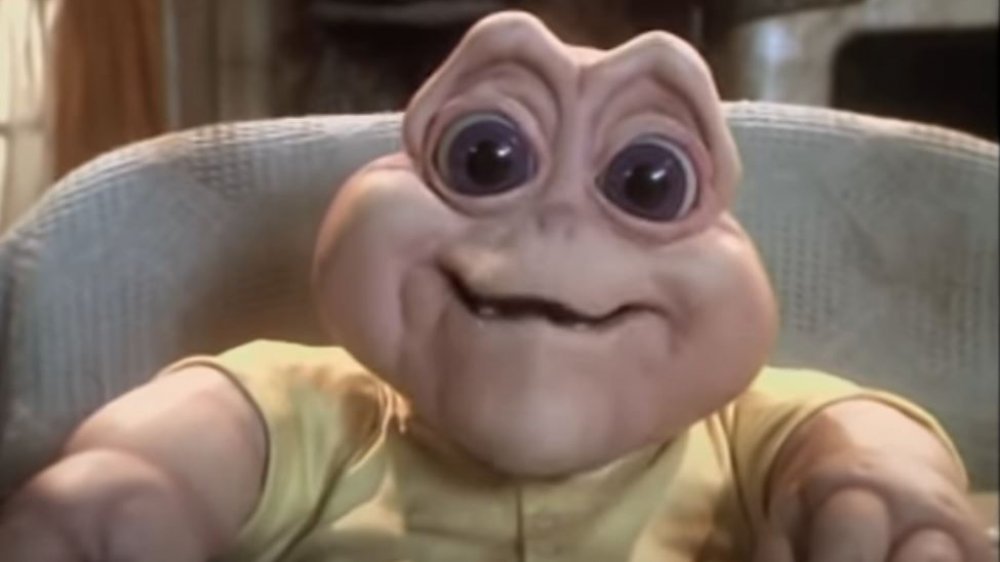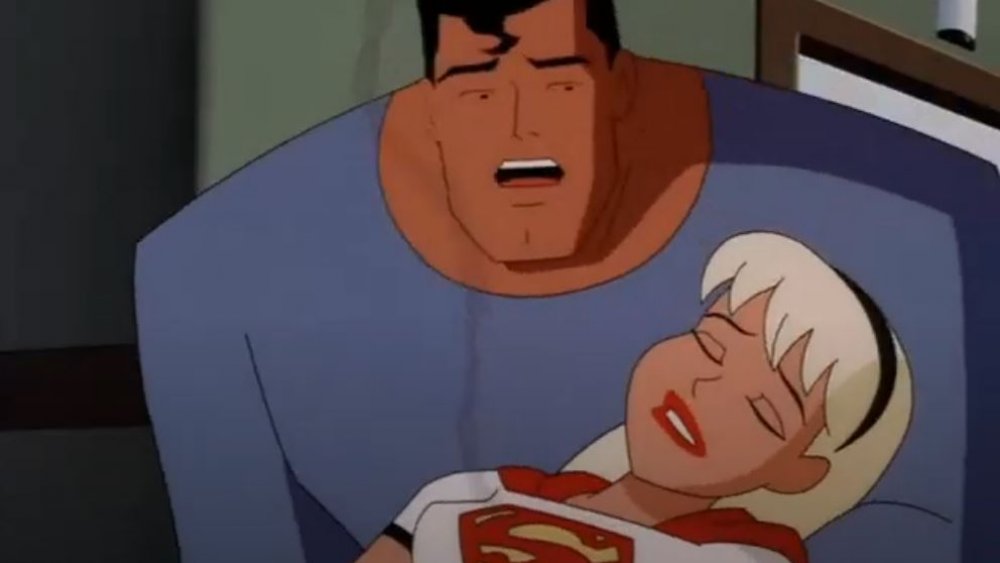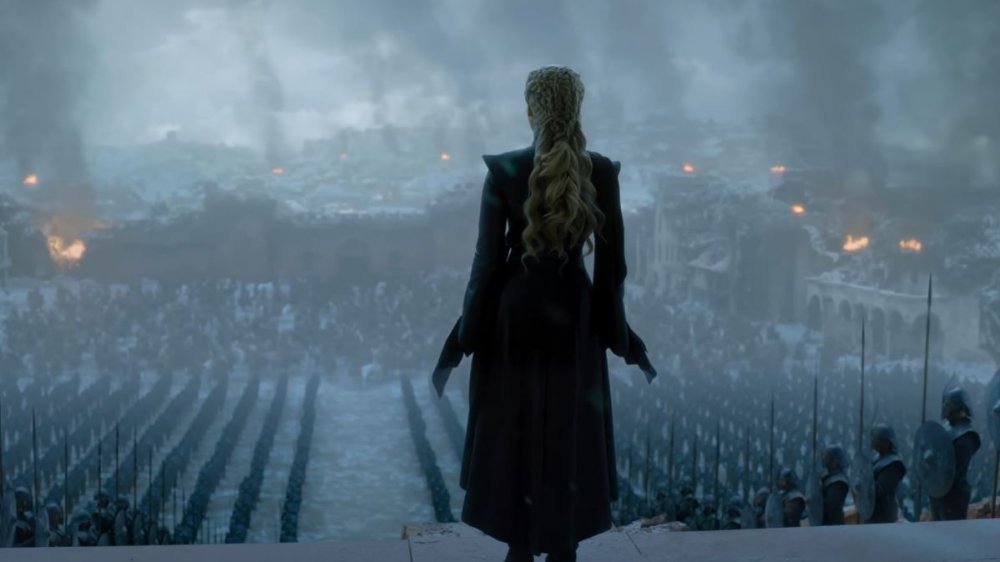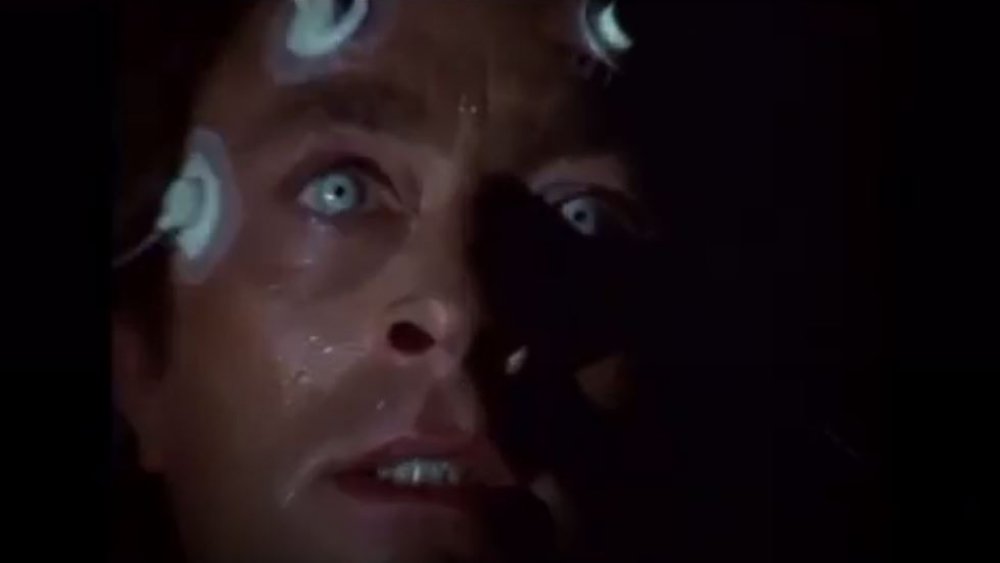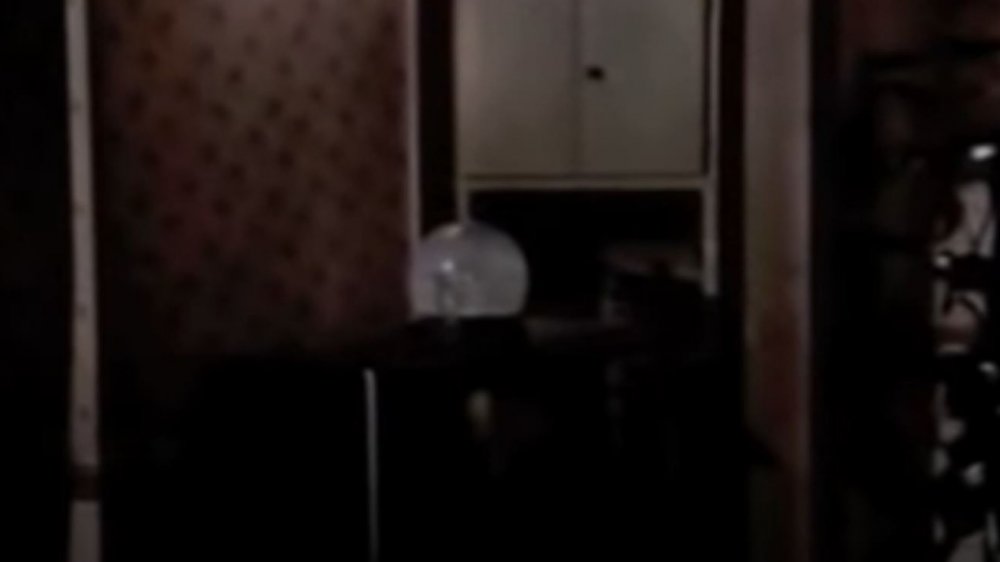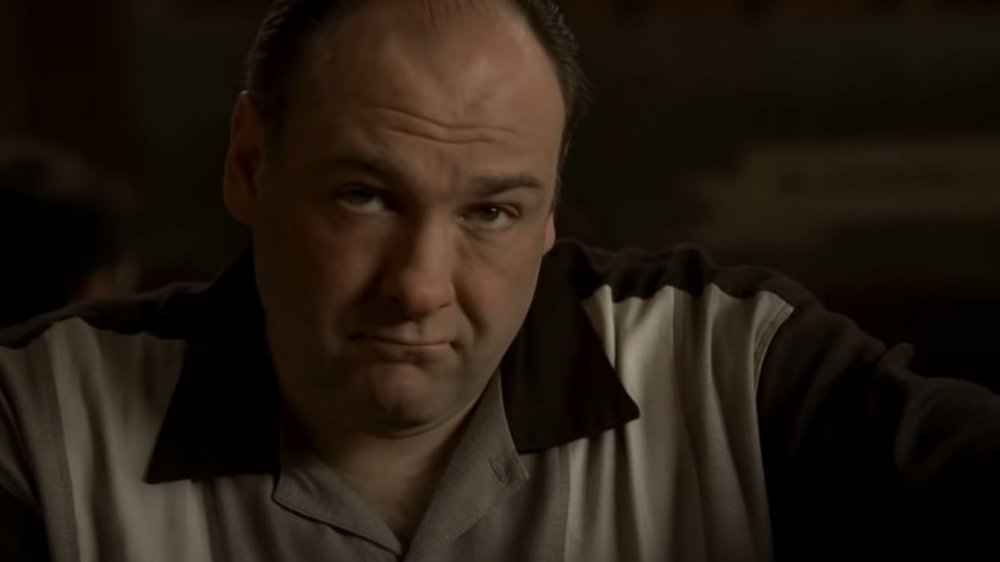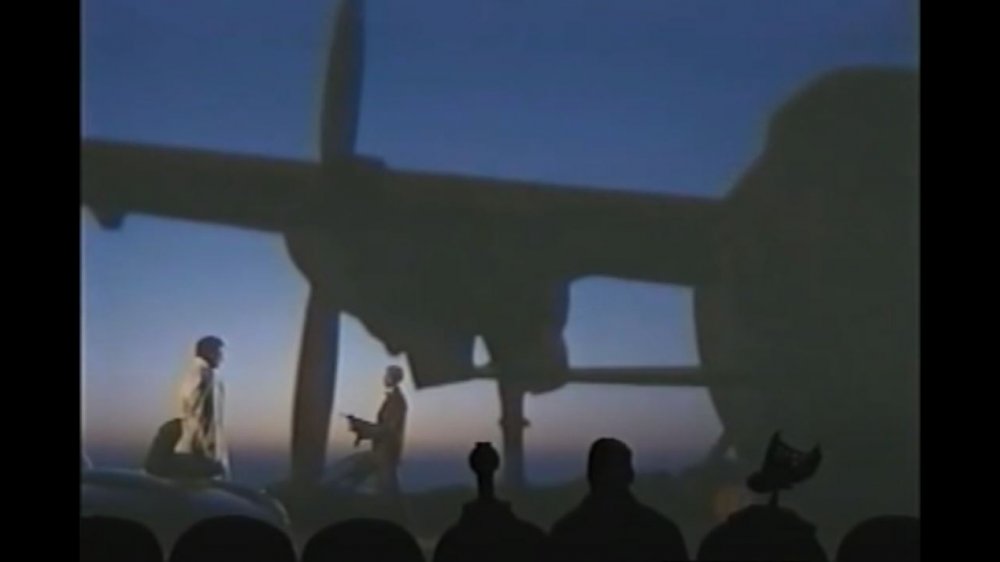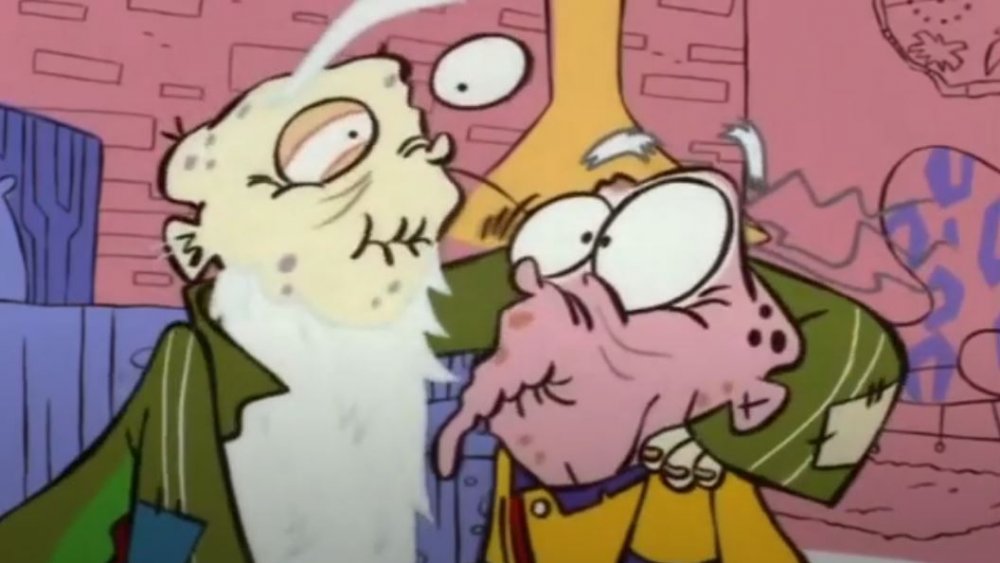The Darkest TV Finales In History
Here's the truth, TV fans: No matter how good a show is, who it influences, or how many seasons it can go on before losing steam, nobody ever forgets (or, in some cases, forgives) the ending. Seriously, just look at Game of Thrones. Television programs, at their core, are serialized stories, and every good story has an ending.
This creates quite a predicament for any showrunner, since they feel pressured to achieve the near-impossible task of writing a finale that tops every single episode before it. Sometimes, the writers knock it out of the park, paying off multiple years of character arcs, tying up the loose threads, and leaving audiences deeply satisfied that the ride was worth it. Other times, it seems like nobody realized they needed to write an ending until the last day.
Either way, though, memorable endings — whether good or bad — don't always come from happy places. Sometimes, even the happiest show can terminate its run in a surprisingly depressing manner. And while some of the disturbing endings here were the result of unexpected cancellations, whereas others were caused by seemingly intentional cruelty, they all share the quality of having created an unsettling place wherein to leave your favorite characters behind.
Seinfeld put everybody in prison
You either love Seinfeld's final episode, or you hate it. Most likely, the latter. No matter what, though, you have to admit that it was a boldly dark way to end an otherwise lighthearted sitcom.
What makes Seinfeld's ending so quietly sinister, to be clear, isn't just that it throws the crew of Jerry, Elaine, George, and Kramer behind bars. No, instead, Larry David clearly wanted to put viewers in the deeply, deeply uncomfortable place of acknowledging that as funny as these folks might be — as much as you might've laughed while they all obsessed over inconsequential minutiae, ruined small businesses, and hurt other people's lives — these characters simply weren't good people. If you weren't separated from George Costanza by a TV screen, his antics would drive you insane. And lest you think the show is being too harsh, the finale makes sure to bring back just about every single side character who ever got humiliated and/or harmed over the course of Seinfeld, all of them ganging up to ensure that the protagonists face brutal consequences. Like it or not, as Decider writes, "It makes sense now! They do deserve to be in jail!"
People usually don't like Seinfeld's finale. Maybe that's the whole point, though. It's a genuinely punishing hour of television, and while it's probably not the finale anyone wanted, it can't be faulted for ambition.
Dr. Beckett's not-so-final Quantum Leap
Quantum Leap was a near-perfect genre hybrid. While the premise of Dr. Sam Beckett leaping through time — with only the holographic image of his buddy Al for support — is pure sci-fi, the conceit that Sam could only move forward by fixing tragedies from the past meant that, from week to week, Sam could jump from crime thrillers to feel-good romances. As the show's intro so memorably repeated, "And so, Doctor Beckett finds himself leaping from life to life, striving to put right what once went wrong, and hoping each time that his next leap will be the leap home..."
The series finale, "Mirror Image," begins with the shock of Sam realizing that he's leapt into his own body ... albeit, in an unfamiliar coal mining town in 1953. Sam chats with a bar owner, implied to be God, who asserts that throughout the series, Sam has unknowingly steered his own ship: He is the one who keeps trying to help people in the past, over and over, instead of going home. The bartender asks Sam if he's ready to finally have a normal life again, but Sam wants to first take one final leap, to prevent his friend Al's fateful divorce. He does this, changes the course of Al's life, and leaps again ...
... only for the screen to fade to black, as a caption proclaims that Sam never returned home. Thus, for all Sam's goodwill, he's still out there. Forever.
When Walt breaks bad, everyone else suffers
"Felina," the last episode of Breaking Bad, might be the most satisfying TV finale of all time. Every question gets answered. Every loose thread gets tied into a knot. However, Jesse's big rescue aside, "Felina" is every bit as dark as the series that spawned it.
Seriously, think about it: What the finale proves, above all else, is that Walt's egotistical meth dealer routine, far from supporting his family, ended up fracturing the lives of every single person he knew and loved. Yes, poor Walt Jr. is going to get a hefty sum of money when he comes of age, but it's still blood money, and that certainly won't undo the severe emotional trauma of finding out his beloved father was such a rotten guy. And yeah, sure, it's nice (and rewarding, as a viewer) that Walt managed to find it in himself to mount a big rescue mission for his former student-turned-meth-partner, Jesse — but this hardly redeems Walt's past actions, considering that he's directly responsible for Jesse having been caged up by neo-Nazis — sleeping on concrete, forced to make meth — in the first place.
One of the darkest, and best, moments of Felina, though, as described by Reuters, is that strained final conversation Walt has with Skylar, wherein he finally admits that building his meth empire was never about his family: "I did it for me. I liked it. I was good at it. And I was really, I was alive."
Luke Cage ended on a disturbing cliffhanger
When it came to Netflix's dark corner of the Marvel Cinematic Universe, Luke Cage (Mike Colter), was easily the most well-meaning, honorable figure of the lot. Sure, he'd always claim that he wasn't heroic, but actions speak louder than words, and whether Luke was bouncing bullets off his chest or staring down bad guys with his impenetrably calm swagger, it's no wonder that season two depicts him becoming widely recognized as "Harlem's hero." Fame can go to your head, though, even if you're Luke Cage. And in the finale, when Luke's archenemy Mariah Dillard finally perishes, she has one last trick up her sleeve: She leaves her nightclub, Harlem's Paradise, in Luke's name. Luke essentially becomes the "good" crime boss of Harlem, and while he believes that he can stay true to his morals even while exhibiting authoritarian tendencies, the episode's last moments, wherein a shockingly cold, all-too-collected Luke stares darkly at the camera, don't bode well for the future.
This disturbing cliffhanger promised a fascinating third season. As showrunner Cheo Hodari Coker told The Hollywood Reporter, "I wanted at the very end of the season for people to really know this guy. I want them to think, 'Let me go all the way back to episode one and watch all 26 again.' We wanted a kind of twist that would make people do that."
Then Netflix pulled the plug, leaving this culturally important series with a serious bummer of an ending.
"Dinosaurs have been around forever and they're not gonna just disappear, right?"
If, for some reason, you never saw Dinosaurs, the Jim Henson Productions series, just know that it was a cheerful family sitcom, ala The Simpsons, wherein a working-class family of anthropomorphic dinosaurs try to make a living, get by, and love each other. If you were one of the '90s kids who watched this show, though, you fully expected it to appear here, once you read the words "darkest TV finales." Why? Because while plenty of sitcoms end on a bittersweet note, there's only one where the doofus dad helps cause the mass extinction of his entire species. It's outright horrifying.
That finale, "Changing Nature," does make for a highly effective climate change allegory, however. It's subtle and powerful, never beating you over the head but nonetheless leaving you feeling incredibly sad. Series co-creator Michael Jacobs, recalling the finale years later, told Vulture that back when they first proposed the concept of killing everybody off, ABC balked but, after a moment of consideration, couldn't really argue that it wasn't the right conclusion: "I said, 'Well, Ted, it's not the cast that we are trying to destroy, it's the entire world. My source for doing this is history!' He thought about it for about 30 seconds on the phone, in silence, and said, 'Okay.'"
Superman: The Animated Series turned its hero into the villain
While Superman: The Animated Series was a quality cartoon, it never quite escaped the shadow of its more remarkable, "Dark Deco" predecessor. However, while the Man of Steel's adventures could often seem lighthearted in comparison to those of his Gotham City counterpart — which is fitting, given the character — it's worth noting that Superman's finale left him hanging in an awfully disturbing predicament.
As Comic Book Resources reminisces, the two-parter "Legacy" features a mysteriously brainwashed Kal-El, who has now become the adopted son of Darkseid and is waging war in his father's name. Yikes. Needless to say, Superman recovers from this horrific turn of events and ends up delivering an unholy smack-down to Darkseid ... but the people of Earth aren't about to just forgive and forget the all-powerful, red-caped alien that threatened them. Thanks to Darkseid, Superman's reputation on Earth is severely damaged, to the point where even most of his trusted Earthling friends (other than Lois and Jimmy, of course) won't move to help him anymore.
And ... that's how it ends. Mic drop. Sadly, when the cartoon's continuity was continued in Justice League, this plot thread was never revisited, and the latter series never explained why people were suddenly okay with Superman again.
Like it or not, Game of Thrones had a grisly finale
Game of Thrones was, arguably, the biggest TV show of the 2010s. Everyone watched it. Not everyone, though, was quite so thrilled with the finale. Frankly, calling the reaction "mixed" might be generous. Now, to be fair, some of the more controversial plot twists actually do fit the established narrative, particularly in regard to Daenerys, but the problem, as Vox points out, is that the showrunners were rushing through so fast that none of these moments land the way they're supposed to, and gradual character arcs are eschewed in favor of big shocks.
Whatever you might think of the finale, though, it's certainly dark as hell. For one, both of the show's biggest heroes get totally screwed, with one becoming a murderous tyrant while the other gets demoted back to square one. The smartest character makes the dumbest decisions, a loyal right-hand man is reduced to a cruel and vengeful jerk, and even when the dust clears (literally) it's really hard to believe that Westeros won't continue to be a bloody, miserable place to live, with a revolving door of good and bad rulers — particularly since, as pointed out by The Week, the series literally depicts all the wealthy aristocrats laughing at the concept of democracy. Sure, having Westeros become democratic would've been super-anachronistic, but still.
In any case, at least Arya made out okay, in the end. That's something.
David Banner never cured himself on The Incredible Hulk
These days, now that Mark Ruffalo's Hulk is recognized as an honored member of the Avengers, it's easy to forget that most depictions of the green goliath are, at their heart, a tragedy ... and frankly, superhero fiction doesn't get much sadder than the 1977 series The Incredible Hulk. Watching Bill Bixby go hitchhiking at the end of every episode, with a backpack slung over his shoulder and the famous "Lonely Man" theme in the background, is perhaps the most depressing sight ever. And the series itself, as Medium writes, took great pains to depict Banner as a decent man plagued by horrible circumstances. For Bixby's David Banner, the Hulk wasn't a superhero but a big, green disease, and from week to week, his chief goal was to find a cure, clear his name, and live a normal life again.
Well, spoiler alert: Banner never gets a happy ending. The actual TV show ended anticlimactically with the episode "A Minor Problem," but thankfully, Banner's story continued in a number of TV movies. Not so thankfully, the last of those was titled The Death of the Incredible Hulk, so you can guess how that went. In the end, Banner's kindness toward so many others goes unrewarded, he is never cured, and he dies in the body of the Hulk by falling out of an airplane. Suddenly "The Lonely Man" is even sadder, right?
St. Elsewhere messed up the continuity of every TV show, ever
A medical drama set in a run-down Boston Hospital, St. Elsewhere was known for its gritty, realistic, and serialized storylines, and it's often cited as one of the most influential shows of the 20th century. St. Elsewhere also, as it happens, ended with the weirdest twist in television history.
It's hard to describe without getting knee-deep in the weeds, but basically, the final moments zoom out to reveal the show's hospital inside a tiny snow globe. A young boy on the autism spectrum, named Tommy, is staring into the globe, while his dad — who, in the series, was previously portrayed as a doctor — is actually a construction worker. In other words, as Mental Floss explains, the entire show had occurred in the imagination of that boy. None of it really happened. If you loved any of the characters, storylines, anything ... well, too bad.
Here's where it gets stranger, though. As famously pointed out by the late, great comic book writer Dwayne McDuffie, if St. Elsewhere was "just a dream," then so are a shocking number of fictional characters, because the show boasted a surprising number of TV crossovers. If you connect the dots, some other shows that all happened in Tommy's imagination include Cheers, Frasier, Homicide, Seinfeld, The X-Files, and (oh no!) The Fresh Prince of Bel-Air. Not horrified enough? According to one analysis by Polygon, this theory wipes out the Marvel Cinematic Universe, too.
The Sopranos left you hanging
Ah, The Sopranos. This is an obvious one, sure, but no list of darkest TV finales would ever be complete without it. Because, honestly, what's darker than leading the audience to believe something horrible and violent is going to befall the main character ... and then just fading to black, so you never get to know? No wonder that one writer at Salon wondered, back when the episode came out, if creator David Chase was "brilliant for so thoroughly subverting our expectations, or ... is he just an a**hole?"
Though over a decade has passed since The Sopranos ended, Chase clearly has no regrets about being so cruel to his audience, and in a 2019 interview with the Directors Guild of America, he continued being ambiguous about whether Tony died, while admitting that the finale was more controversial than he expected: "I thought the ending would be somewhat jarring, sure. But not to the extent it was, and not a subject of such discussion."
You've got to him credit, though. There's a reason people are still debating this ending today. But hey, don't worry about it. Just have some onion rings, and see what happens.
The uncomfortably bleak ending of Mystery Science Theater 3000
Mystery Science Theater 3000 is about the most joyous television program ever made ... you know, as long as you didn't direct one of the horrible movies they eviscerated. For years, the program showed a human hostage (first Joel, then Mike) and his robot pals, Tom Servo and Crow, trapped on the Satellite of Love, biding their time by watching an endless stream of laughable B-movies. All good things must end, though, and 1999 marked the climax (or, technically, the end of the "Mike era"), with the episode "Danger: Diabolik," wherein the raucous trio finally escape from their space prison and crash-land on Earth. Free at last!
Lest you think that sounds like a happy ending, though, think again. Once Mike and the bots get settled, as noted by Tor, the finale flash-forwards to the future, where the three of them have rented a dark, crappy apartment together, where they spend their time ... uh, watching terrible B-movies. While this is certainly amusing, it also paints a rather desolate portrait of all these characters, as it implies they're never going to grow, evolve, or get out of their bubble. After all, why'd they spend so many years trying to escape the satellite, just to be stuck in an apartment, doing the exact same thing?
Ed, Edd n Eddy (originally) ended on a bitter note
Ed, Edd n Eddy was always a cartoon that had a bit of a dark side. Sure, there's a lot of obvious youthful nostalgia in there, but the trio of Eds do feel rather isolated from their peers, and there's a lot of sadness to the character of Eddy — a braggadocious loser, always trying to scam others, who worships an older brother who clearly looks down on him. That depressing subtext hit the foreground in the show's original finale, "Take This Ed and Shove It." The episode begins like any other, but during the second part, Eddy gets hit on the head and awakens as a bitter old man, who's spent the whole series remembering his lost youth. Eddy spends the rest of the episode trying to escape his old age, but in the end, all he can do is accept his situation.
It's pretty depressing stuff, for a kid's cartoon. However, the show proved popular enough that it was revived, as AWN reported in 2004, and an additional two seasons (plus TV specials) followed. Nonetheless, the fact that this episode was intended to be the last time anyone saw the Eds is definitely something of a shock.
